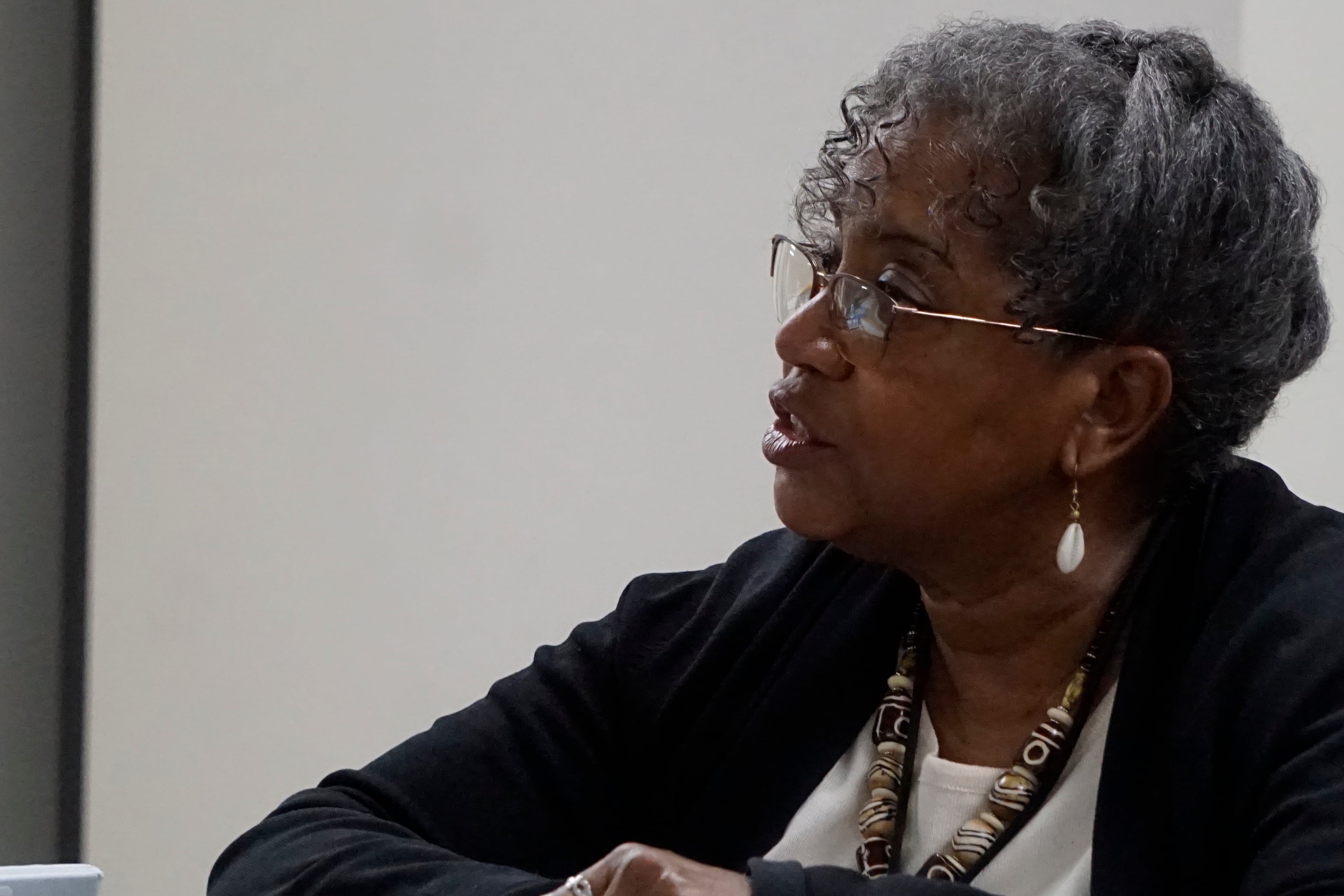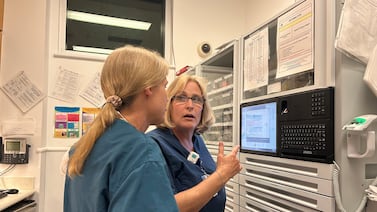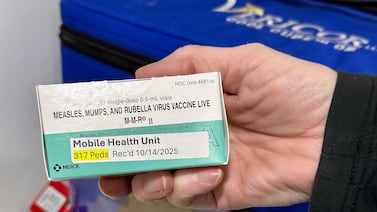Public health, explained: Sign up to receive Healthbeat’s free Atlanta newsletter here.
DeKalb Public Health officials reported this week that the number of refugees turning up for health screenings has dramatically declined, and that the agency saw minimal impact from the federal shutdown.
DeKalb Public Health conducted just two refugee screenings between Aug. 1 and Sept. 30, interim health director Dr. Lynn Paxton told board members Thursday.
That’s a dramatic decline from the same period last year, when the agency conducted 544 refugee screenings, according to spokesperson Eric Nickens.
The screenings are not required but highly recommended for newly arrived refugees, Tuberculosis and Refugee Program coordinator Lucas O’Reilly told Healthbeat via email. The exams involve checking vital signs, hearing and vision, tests for infectious diseases, including HIV and TB, mental health screenings, and other components.
The screenings help refugees get linked to care and provide an opportunity to get vaccinations needed for the green card process, O’Reilly said. It also helps protect the health of the rest of the population.
The agency has served immigrants and refugees in other ways, Nickens pointed out, including by providing 616 immunization visits and 423 green card visits in the same two-month period.
It’s not clear why refugee health screenings have dropped, Nickens said. Other local health care providers have reported widespread fear in that community, including about seeking health care. At the same time, President Donald Trump’s administration has paused refugee admissions since January, resulting in the lowest number of refugees entering the country since 2016, according to a report this week from independent health policy nonprofit KFF.
“Now we know that the reasons for that are external to us. It’s what’s going on in the general world,” Paxon said.
In other news, DeKalb Public Health faced minimal impacts from the recent federal government shutdown, Nickens said.
The Women, Infants and Children nutrition program, which served 14,313 people as of August, was not interrupted, Paxton said. Federal funds have continued to flow to the agency, finance manager Phuong Le said.
DeKalb reports high rate of diabetes
DeKalb County has a much higher rate of hospitalization for diabetes than Georgia residents on average, and those rates are much higher for Black residents than white or Asian residents – nearly four times as high, Joseph Davis of the Office of Health Assessment and Promotion said during a presentation to the board
About 220.6 people per 100,000 people in DeKalb had diabetes-related hospital visits, compared to 210.2 per 100,000 people in Georgia from 2018 to 2023.
That rate is especially high for Black DeKalb residents, with 323.6 diabetes-related hospital visits per 100,000, compared to 82.2 for white residents and 46.9 Asian residents, Davis said.
The county has several programs to try to prevent the disease and its complications, Davis said.
Residents in the southern part of the county had more hospital visits than those in other parts of the county, Davis said. Efforts to address this include a mobile health clinic that has conducted 272 glucose screenings over the past year and identified 13 people who needed follow-up care.
The DeKalb County Health Department also runs a Diabetes Prevention Program, a “12-month lifestyle program that helps people make sustainable changes, things like healthier eating, increasing physical activity, and building long-term habits,” Davis said. The program has nine enrollees.
In response to a question from board member Shatrina Cosby about how more people could be encouraged to enroll, Davis said he is being trained in how to run the program, which would expand capacity. Cosby suggested allowing graduates of the program to train to run it in the future.
New board member Dr. Jewel Crawford said she’d like to see the agency approach the state government and corporate donors to fund community health workers to help residents with diabetes and other chronic health problems.
“I’m not hesitant to ask anybody, because they really have an obligation to support the community,” Crawford said. The South DeKalb resident said she wanted to join the board because she has “a lot of concerns about the health conditions in DeKalb County,” including the health impact of proposed data centers.
Crawford is a family medicine physician who works on environmental health at the Agency for Toxic Substances and Diseases Registry, a federal agency headquartered in Atlanta and closely tied to the U.S. Centers for Disease Control and Prevention.
In other news from the board:
- Five mpox cases and 15 pertussis (whooping cough) cases were reported from Aug. 1 to Oct. 31.
- DeKalb Public Health conducted a community survey program called iHeard to improve health knowledge and address misinformation. The program, which ended on Aug. 31, enrolled around 100 participants in weekly surveys and collected 1,597 over six months. The program also trained 44 community partners in health literacy and community engagement.
- The environmental health team conducted 1,065 inspections of food service establishments between Aug. 1 and Oct. 31.
- The health agency had 113 patients receiving pre-exposure prophylaxis, or PrEP, drugs that can prevent HIV between August and October. It also distributed close to 60,000 condoms at its health centers and community events, and tested close to 500 people for HIV at its health centers, community events, and at the DeKalb County jail.
- Administrative assistant Basma Abdulmaseh received the state’s “Shining Star” award for her work on Babies Can’t Wait, a statewide program that screens and supports infants and toddlers with special needs.
Rebecca Grapevine is a reporter covering public health in Atlanta for Healthbeat. Contact Rebecca at rgrapevine@healthbeat.org.







